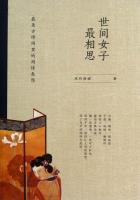The Reform Movement of 1898 was a political reform movement of bourgeois reformists.
In April 1895, the Qing government was defeated in the Sino-Japanese War of 1894-1895 and was compelled to sign the Treaty of Shimonoseki with Japan -a severe humiliation for China. When the news spread to Beijing, public anger ran very high. Kang Youwei and others who were participating in the general examinations in Beijing mobilized over 1,300 successful candidates in the imperial examinations from various provinces to submit a written statement to Emperor Guangxu opposing the signing of the Treaty of Shimonoseki. They advocated political reform and organized the Society for National Renewal, thus launching the reform movement. Kang Youwei, Liang Qichao and others organized societies for national renewal in various cities to advocate reform, and the movement soon spread throughout the country. The political force of the bourgeois reformists led by Kang Youwei gained the
support of many important officials.
In the winter of 1898, Germany forcibly occupied Kiaochow Bay. The imperialist conspiracy to carve up China was finally revealed. Kang Youwei hurried to Beijing to present a memorial demanding that the emperor carry out reforms.
In April 1898, Kang Youwei and others, with the aim of protecting the country, the Chinese nation and the education system, advocated the establishment of a Society for the Study of Self-Renewal in Beijing.
On June 11, 1898, Emperor Guangxu issued an edict, declaring the implementation of reforms. He appointed Kang Youwei as an official in the Ministry of Foreign Affairs to take charge of carrying out reforms. During this period, Emperor Guangxu issued a series of edicts and decrees on reforms, concerning the study of culture, scientific technology and the managerial systems of western countries, developing capitalism and establishing a constitutional monarchy.
At that time, the real power of the Qing government was held by the Empress Dowager Cixi. The implementation of reform threatened her power, so she was determined to overthrow Emperor Guangxu. Kang Youwei and the other reformists began to hedge their bets and sought support from Yuan Shikai, a very powerful minister. Yuan Shikai agreed but spoke out of turn on the issue to Ronglu, a favorite of Empress Dowager Cixi. Inevitably the Empress Dowager found out.
Late in the night of September 21, 1898, the Empress Dowager Cixi launched her coup. She had Emperor Guangxu imprisoned and issued a decree to declare that she now held power. Subsequently, she ordered that the most prominent reformists be arrested and killed.
Kang Youwei had already left Beijing and Liang Qichao had escaped to the Japanese Consulate. Dozens of reformists were arrested. Of these, Tan Sitong, Yang Rui, Lin Xu, Liu Guangdi, Yang Shenxiu and Kang Guangren were beheaded at Caishikou in Beijing on September 28. Tan Sitong remained calm before his execution. Defiantly he cried with his last breath “I go to my death happily in the knowledge that what I fought for was the good of China!”
Subsequently, Empress Dowager Cixi dismissed from office a large number of officials who had supported reform and abolished all reform decrees issued by Emperor Guangxu.
The Reform Movement of 1898 thus ended in failure.
The Reform Movement of 1898 was a progressive movement with far-reaching influence. Its failure proved that the road of bourgeois reform was a blind alley in China.















